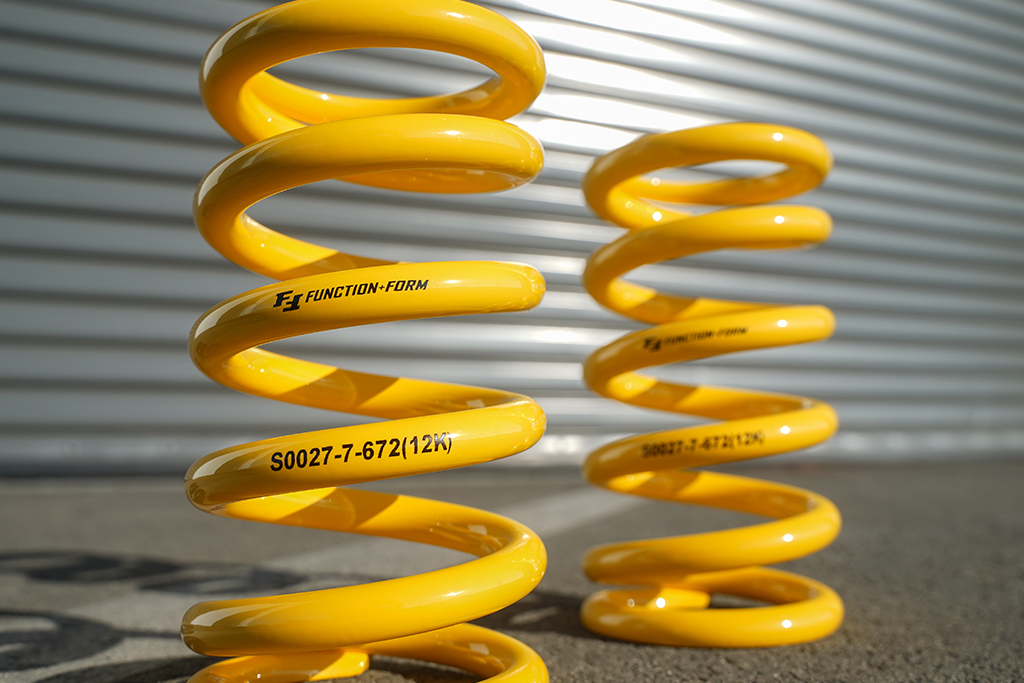Spring Rate Conversion: kg/mm to lbs/in

When it comes to optimizing your vehicle’s suspension for performance, one of the key factors to consider is the spring rate. often measured in kilograms per millimeter (kg/mm) or pounds per inch (lbs/in), determines how stiff or soft your suspension system will be. Whether you’re a car enthusiast or a professional mechanic, knowing how to convert from kg/mm to lbs/in and vice versa is essential for making informed decisions about your vehicle’s handling characteristics.
What is Spring Rate for Coilovers?
Before we dive into the conversion process, let’s first understand what spring rate means in the context of coilover. The spring rate represents the amount of force required to compress a spring by a certain distance. In simpler terms, it tells you how stiff or soft a spring is. A higher spring rate indicates a stiffer spring, while a lower spring rate means a softer spring. Getting the right rate is crucial to achieving the desired ride comfort and performance for your vehicle.
How Many Pounds is a kg Spring Rate?
Now, let’s tackle the conversion. If you’ve got a spring measured in kilograms per millimeter (kg/mm) and you want to know the equivalent in pounds per inch (lbs/in), you’ll need to perform a conversion. The conversion factor you need is 55.9974. To find the equivalent spring rate in lbs/in, simply multiply the kg/mm value by 55.9974.
For example, if you have a spring rate of 10 kg/mm:
10 kg/mm * 55.9974 = 559.974 lbs/in
So, a 10 kg/mm is approximately equivalent to ~560 lbs/in.
When shopping for springs to fine-tune your suspension setup, consider exploring a range of options available at Function and Form. Understanding the conversions between kg/mm and lbs/in can empower you to make informed decisions about your vehicle’s performance and comfort on the road.
Conversion Chart
LB/IN TO KG/MM:
700 lb/in = 12.5 kg/mm
650 lb/in = 11.6 kg/mm
600 lb/in = 10.7 kg/mm
550 lb/in = 9.8 kg/mm
500 lb/in = 8.9 kg/mm
450 lb/in = 8 kg/mm
400 lb/in = 7.1 kg/mm
350 lb/in = 6.2 kg/mm
300 lb/in = 5.3 kg/mm
250 lb/in = 4.5 kg/mm
KG/MM TO LB/IN:
16 kg/mm = 896 lb/in
15 kg/mm = 840 lb/in
14 kg/mm = 784 lb/in
13 kg/mm = 728 lb/in
12 kg/mm = 672 lb/in
11 kg/mm = 616 lb/in
10 kg/mm = 560 lb/in
9.0 kg/mm = 504 lb/in
8.5 kg/mm = 476 lb/in
8.0 kg/mm = 448 lb/in
7.5 kg/mm = 420 lb/in
7.0 kg/mm = 392 lb/in
6.5 kg/mm = 364 lb/in
6.0 kg/mm = 336 lb/in
5.5 kg/mm = 308 lb/in
5.0 kg/mm = 280 lb/in
4.5 kg/mm = 252 lb/in
4.0 kg/mm = 224 lb/in
3.0 kg/mm = 168 lb/in
2.0 kg/mm = 112 lb/in
Purchase Springs: https://www.f2suspension.com/product-category/springs/
